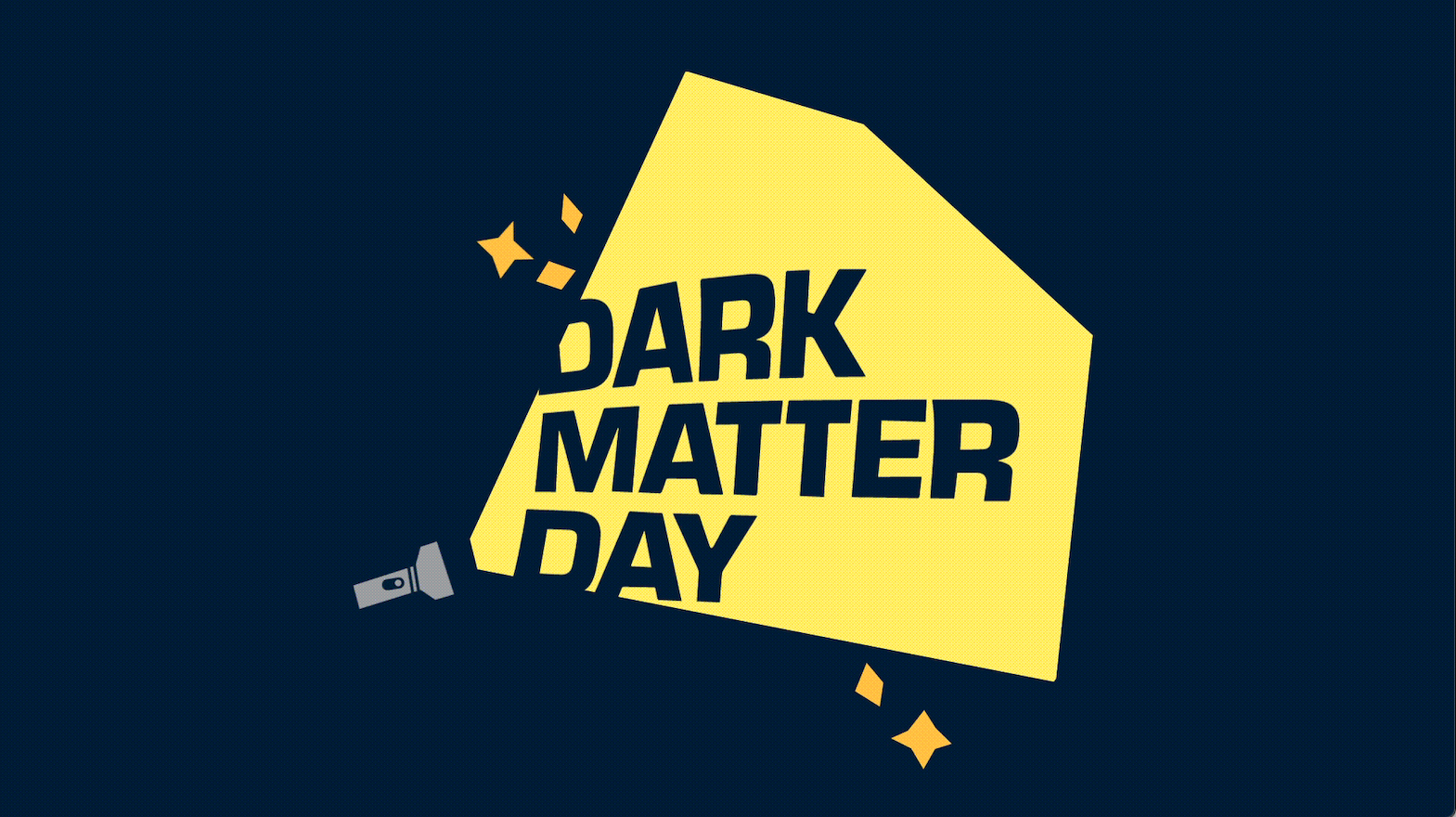For the fifth annual celebrations of Dark Matter Day, scientists all over the world are hoping to shed some light on one of the greatest mysteries of the universe. From 26 October up to and including the day itself on 31 October, CERN is joining these global celebrations with several dark-matter-themed events, both online and in person.
Scientists estimate that all the matter we see and interact with makes up only 5% of the universe’s mass – the rest is unseen and little-known. Around 85% of this unseen mass is thought to be dark matter. It is notoriously difficult to study because it does not visibly interact with light. While scientists cannot directly detect dark matter, they are able to observe its influence from the way galaxies are held together and how they spin faster than expected.
So, if dark matter cannot be seen, how do scientists study it? At CERN, there are a number of ways researchers look for dark matter. One of the main techniques is by using the Large Hadron Collider (LHC) to collide beams of protons, whose collisions may directly produce dark matter particles. Detectors around the LHC such as ALICE, ATLAS, CMS, LHCb and FASER track the particle collisions to look for signs of dark matter, indicated by a discrepancy in the collision momentum. CERN is also host to a variety of other non-LHC experiments involved in dark matter research, such as CAST, which looks for hypothetical particles called axions, NA64, which collides electron beams with atomic nuclei, and AMS, which searches for cosmic rays from the International Space Station.
Keep an eye on CERN’s social media channels during the Dark Matter Day celebrations to find out more. There will be takeovers from expert theoretical physicists and conversations with representatives from the CERN experiments on Twitter Spaces and Instagram. You will also be able to submit your own questions about dark matter on social media, using the hashtags #DMD2022, #DarkMatterDay and #DarkMatterDay2022.
CERN’s Dark Matter Day celebrations culminate with a lecture in the Globe of Science and Innovation at 8.00 p.m. on 31 October. It will be delivered by Nicholas Rodd, a CERN theoretical physicist with expertise on dark matter and its mass. You can sign up for this talk on the event page.
If you would like to get in on the action from elsewhere in the world, you can find events happening near you at interactions.org.

